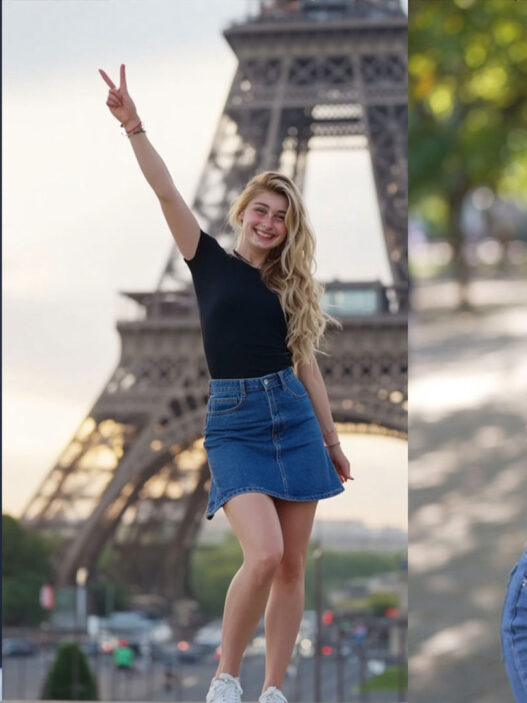The digital age just delivered pop culture its latest – and most controversial – sensation: The Velvet Sundown, a “band” that never held a rehearsal, never toured, and was born, raised, and launched into stardom by artificial intelligence. Their rapid ascent wasn’t just impressive; it was unprecedented and edged on the surreal. Here’s why.
The Phenomenon: Stardom for $8
In early July 2025, listeners from London to Los Angeles stumbled onto The Velvet Sundown on Spotify’s “Discover Weekly” or viral playlist circuits. Their sound, blending folk, psychedelia, and digital allure, fit snugly next to the latest chart-toppers. Within weeks, they had amassed over 600,000 (and later, reportedly as many as 1.4 million) Spotify monthly listeners — a count that would make most rising indie bands green with envy. Yet the real jaw-dropper? Reports allege the entire project’s production cost was a mere $8, likely representing the expense of a few AI software credits or cloud-computing fees for generative music tools.
The Great AI Band Reveal (and Ruse)
At first, The Velvet Sundown maintained an enigmatic presence, mirroring the oblique allure of retro mystery bands. But soon, fans and journalists noticed uncanny details: none of the purported band members existed outside Spotify, and their bios and visuals were too immaculate. After much online speculation (and even deception by fake spokespeople trying to throw the press off the scent), the creators eventually admitted they were a “synthetic music project guided by human creative direction”—songs composed, voiced, and visualized with advanced AI tools like Suno.
AI Music Goes Mainstream (and Stirs Industry Upheaval)
The story isn’t as unique as one might hope. The rise of generative AI tools means almost anyone, regardless of musical training, can generate a catchy psychedelic rock anthem in seconds. In April, the French streaming platform Deezer disclosed that 18% of all new tracks uploaded daily (over 20,000 a day!) were wholly AI-generated. Even more sobering for traditionalists: AI-generated music, though still accounting for just about 0.5% of all streams, is rising fast.
And the revenue? A recent projection suggested The Velvet Sundown could conceivably earn more than $34,000 in streaming royalties in a single month, having spent pocket change on actual production.
The Authenticity Debate: What’s “Real” in Music Now?
Is the music industry’s future destined for synthetic soundscapes? The answer, if you follow The Velvet Sundown’s controversy and the heated debates it sparked, is complicated:
- Proponents of AI Music argue that generative tools are the next evolution of digital music, potentially democratizing access and allowing for wild, joyful experimentation. AI can serve as a collaborator, not a replacement, accelerating creative cycles and remixing genres at will.
- Critics worry about the erosion of authenticity, originality, and emotional connection — the human elements that define art. Some say there’s “no story, no soul” in algorithmic music; others fret about AI’s reliance on existing datasets that mine, borrow, or outright mimic actual artists’ work.
Leading industry figures are calling for strict transparency, clearer workflow labeling, and even legal protections for songwriters whose work might be ingested by training algorithms without their consent.
If a quote appeared here, for example: Deezer’s CEO claims, “Listeners deserve to know the story behind what they’re hearing, and artists need a shot at fair royalties in a fast-morphing landscape” — according to statements made to [cite relevant news website or agency here; e.g., Reuters, BBC, The Guardian, etc.].
Deezer Flags AI Content: Transparency Takes Center Stage
Amid this sea change, streaming platform Deezer has become the first major service to automatically flag AI-generated content with prominent “AI-generated” tags. Albums and tracks are reviewed using proprietary audio analysis tools that detect clues—in vocal synthesis or compositional structure—unique to machine-made music. Deezer’s CEO insists this isn’t about shunning AI, but about preserving trust: listeners deserve to know the story behind what they’re hearing, and artists need a shot at fair royalties in a fast-morphing landscape (quote attributed to Deezer’s CEO in a statement to [mention the relevant news website or agency]).
Deezer’s move also introduces practical consequences: AI tracks are being demonetized to protect human artist payouts and won’t appear in editorial or algorithmic playlist recommendations, offering a first blueprint for industry-wide adaptation.
The Future: Music’s Next Frontier or a Synthetic Desert?
The Velvet Sundown has become both a symbol and a flashpoint—a test of our creative boundaries and expectation of authenticity. Every play, share, or playlist assignment amplifies not only catchy hooks but urgent questions: Will listeners care less about who or what made the music, just so long as it’s good? Or is music’s magic still rooted in the messy, glorious unpredictability of human imagination?
For now, The Velvet Sundown’s existence signals the arrival of a new era — one where a band can hit the big time with $8, a bold idea, and a laptop full of code. The encore? That’s up to the audience.



















